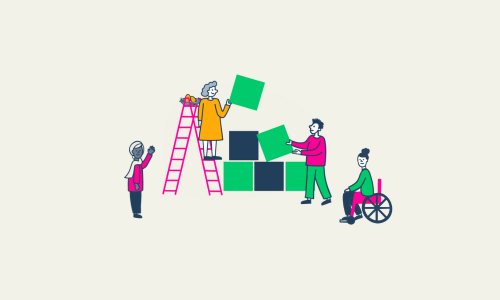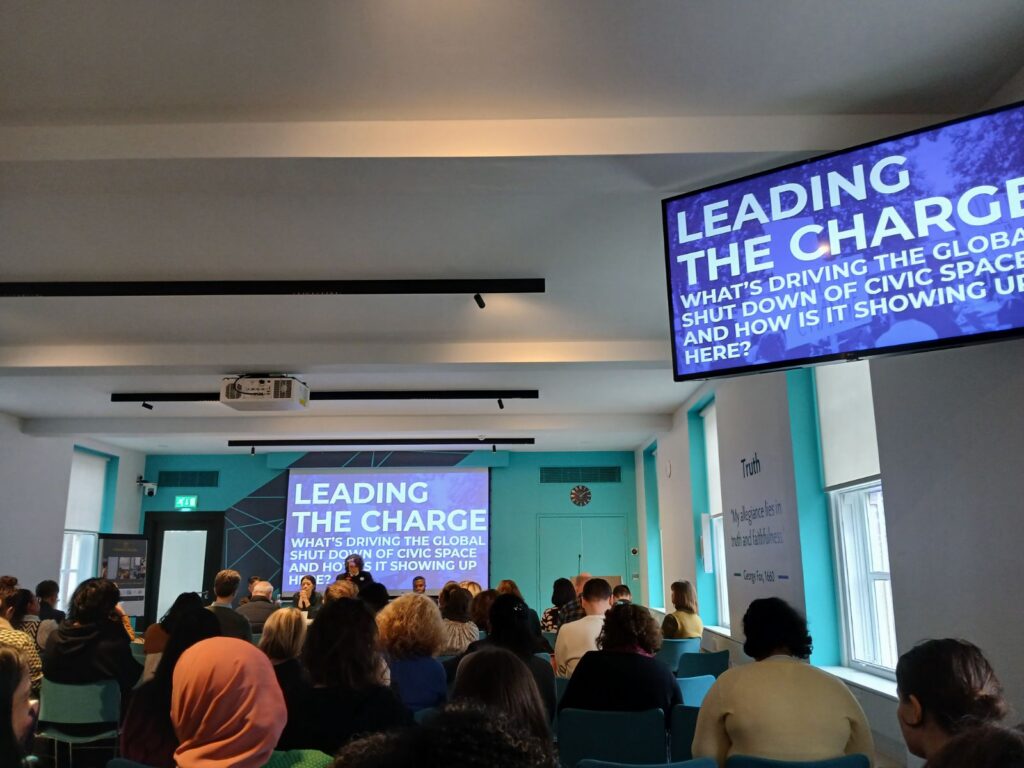How Microgrants are Powering Grassroots Climate Solutions and Fuelling Young Activists to Make Change
In case you missed the first blog in our series on International Grant Distribution, we introduced the service and shared a host of inspiring youth-led projects from around the world. In this blog, we share insights from interviews with six grantees, focusing on their work, why they were compelled to take action and what the grant from the Urban Movement Innovation Fund really meant to them.
At The Social Change Nest, we’ve always believed that change doesn’t trickle down, it surges upward. And often, what sparks that surge is modest funding in the hands of the right people. Microgrants may be small in size, but when placed directly into the hands of community-rooted organisers, they become levers of transformation.
In partnership with the Urban Movement Innovation Fund (UMI Fund), we’ve had the privilege to distribute microgrants internationally, with a focus on youth-led climate justice efforts. What unites all these efforts is a drive to act now, not wait for ideal conditions, institutional permission, or perfect plans. What enables that urgency to become action is funding that’s fast, flexible, and trust-based, and that’s where our partnership comes in.
Here’s a closer look at what UMI Funding enabled in 2024, through the eyes and work of some incredible grantees:
- Blogs

Amara Nwuneli
Preserve Our Roots - Nigeria
Read more
Amara is 17 years old, making her our youngest grantee and activist! After experiencing her first climate disaster, flash floods in Lagos, Amara knew she wanted to do something to help the local community. Preserve Our Roots created the G.R.E.E.N Recycled Materials Park Initiative, which transformed an underutilised area within a low-income community into a vibrant, environmentally conscious and educational recreational space. The park was designed and constructed using recycled materials, showcasing environmental protection and sustainable development for the whole community.
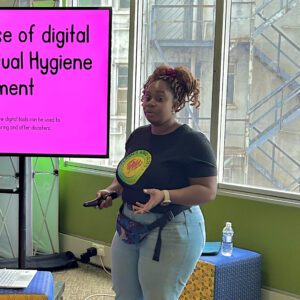
Chido Nyaruwata
Flames and Lillies Climate Initiative - Zimbabwe
Read more
In the knowledge that some individuals were more vulnerable to environmental health-related diseases than others, Chido wanted to create safe spaces for girls and young women to learn and enhance their knowledge about climate change. Flames and Lillies ran the ‘Girl-led Disaster Risk Reduction (DRR): Securing a Sustainable Future in Harare’ programme, which addressed the intersection of gender, climate and DRR. They were able to engage 105 girls through co-learning sessions, creative mapping and participatory action research.
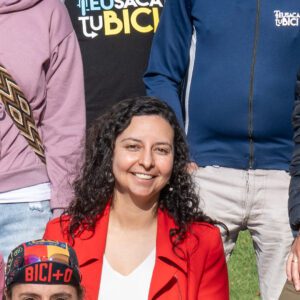
Daniela Castila Orduz
Movilizatorio - Colombia
Read more
Daniela is a bicycle activist with a passion for active mobility, sustainable transport and the green energy transition. Having used her bicycle to commute to university and work, Daniela discovered many cycling collectives and the impact that this form of transport has not just on air quality but also connecting people to social and environmental justice issues. As part of Movilizatorio, she is now a UMI Fund regular, having worked across 6 different projects funded by UMI in Cali and Bogota, from cycling groups making artistic movable installations to communications campaigns around air quality and active mobility.
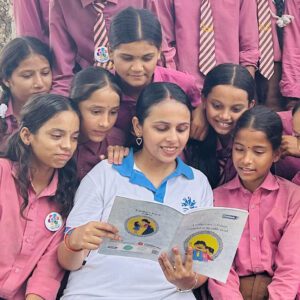
Garima Pant
Women Welfare Foundation - Nepal
Read more
Garima grew up in Nepal and witnessed a lot of people suffering from gender inequality and climate change, which has a disproportionate impact on women and girls. She founded the Women Welfare Foundation to empower women in Nepal through climate literacy and sustainable practices, and with a grant from the UMI fund, successfully ran the programme in a rural community. The project was featured in local news, and the local government would now like to see the programme brought into schools and other women’s groups in the future.

Luisa Santi & Abdul Wahab Watan Dost
Climate Activist Defenders - Brazil/ Afghanistan
Read more
As an Afghan youth activist in exile, Abdul Wahab turned trauma into collective healing with the support of Climate Activist Defenders and other displaced environmental campaigners. The UMI-funded project we discuss in this blog supported Afghan climate justice activists like Abdul by addressing their mental health needs and empowering them to lead local climate justice actions. Through targeted mental health support, skills development and financial scholarship, the project enabled activists to engage with their communities and drive impactful initiatives.
Luisa Santi works for Climate Activist Defenders, who aim to protect the lives and well-being of frontline climate justice activists working under oppressive and dangerous conditions.
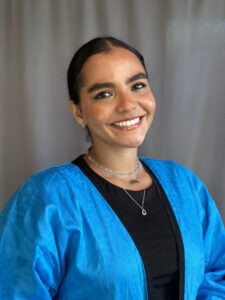
Yasmina Benslimane
Climate Sirens - Morocco/ Puerto Rico
Read more
Yasmina is a feminist activist, consultant, and coach, whose advocacy is shaped by her identity as a diasporic feminist and her mother’s connection to land stewardship in Morocco. Since starting the organisation Climate Sirens, Yasmina has been able to support decolonial and Indigenous perspectives from the South West Asia and North Africa (SWANA) region. The project that received a grant from the UMI Fund primarily worked with women’s cooperatives in the Atlas Mountains in Morocco through consultations and workshops to identify their community needs. It led to a partnership with the Rosa Damaskina Cooperative, promoting environmental responsibility through the cultivation of organic roses while supporting local women on their path to financial independence.
Personal connections and leaps of faith
Coming from different backgrounds and avenues of life, many of the grantees’ past experiences dictated why making positive change was so important to them.
For Chido and Garima, they saw a gap in the education system that they wanted to address.
During her masters, Chido started unpacking the question of why some individuals were more vulnerable to environmental health-related diseases, sparking an interest in understanding the urban environments that people navigate and the challenges that they face.
Chido told us, “I’ve always had the idea for Flames and Lillies, but I was a bit scared to start off something on my own. But with encouragement from other young people and also my experiences when working in youth activist spaces, I noticed that there was this gap that issues around women and gender and girls were not adequately addressed in some of the spaces I was participating in.”
Having grown up in a rural community in Nepal and completed a Bachelors in Development Studies, Garima echoed this. “I had witnessed a lot of people suffering from gender inequality and vulnerability of climate change, which has a disproportionate impact, especially on women and girls.” “I always wanted to do something for the community and that’s motivated me to do something in my young age.”
Similarly, Amara took inspiration from her grandfather, working with him to help raise funds to build a new school when floods devastated their village. “When I first experienced my first climate disaster, we were displaced because of flash floods and our home was ravaged, and the entire community was facing those losses and agricultural losses.” Through this terrible disaster, Amara saw the power of storytelling and made sure that local youth voices were heard. “Preserve Our Roots mobilises youth stories and really got our voices in the eyes of the government, which is really something that has not been seen or has not been done, and I think over time we just developed, just really pushing grassroots initiatives and education.”
While their first-hand personal experience of climate change inspired their work, UMI Fund provided the microgrants they needed to get started. Anna Jones, Programme Manager at UMI Fund, said, “recognising that youth activists were coming through but they needed funds and it was very difficult for them to access, we realised that we needed a mechanism to be able to get funds down to them.” That’s where the partnership with SCN was formed. – we bridge the gap between the UMI Fund and the grantees, handling everything in between and enabling the impact to really grow.
“It’s been phenomenal seeing how that’s then evolved and how important it still is. And how there aren’t many entities that are able to get funds out in that way. Small amounts to individuals and groups that don’t necessarily have legal registration but are doing amazing amazing community work.”
Gaining trust and confidence
For many grantees, receiving a microgrant was much more than a financial transaction; it was the first time they felt truly seen, and the importance of their work was verified.
“When I was six, I didn’t think about school. I thought about food. This grant helped me rebuild a life — and helped others do the same.” Having been selected to receive funds, Abdul said, “The moment I got the email, I cried. It meant I could keep going — and that someone saw me.”
By funding those on the frontline of change with firsthand experience in their local areas, UMI Fund is spurring on a whole generation of people who are often overlooked and underfunded. The terms are less rigid, focusing on the actions rather than the regulations and the paperwork. These microgrants are sometimes seen as seed funding, getting a group or project off the ground so others can be inspired and begin to contribute.
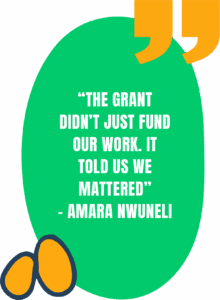
Yasmina, on the other hand, had already been running her organisations and gaining funding. She started Politics4Her and Climate Sirens after feeling disillusioned by the international development space. Having completed a Master’s at the United Nations University of Peace in Costa Rica and then worked with the United Nations, she felt that she didn’t have a connection with the community. As a result, and through working with a team of volunteers, she created her organisations to operate on the ground, often in regions that are ‘filled with turmoil, instability, war, genocide and forced displacement’. The UMI Fund allowed Yasmina and Climate Sirens the flexibility to show they valued local experience, opinions, and those carrying out the work. “We’ve had so many grants where they expect output after output — but don’t let you pay your team. This was different. It felt like trust.”
Having interviewed these grantees, for some, the sense of dignity and recognition felt just as powerful as the funding itself. It allowed these leaders to move forward without fear — and often, for the first time, without asking permission.
UMI think of all their grantees as partners. Anna Jones, from UMI Fund said that UMI “try to make sure that there’s as little burden on partners in terms of applications and reporting so that they can just get on with the work and not necessarily have to jump through hoops.” UMI Fund is constantly evolving and deepening its learning on power dynamics, strengthening its approach of ‘trust-based philanthropy.’
The ripple effect
It’s important not to forget that it isn’t just the grantees themselves who gain from funding.
Daniella told us, “Most of the people in the cycling collectives that work with Movilizatorio for the improvement of air quality and for better conditions for active mobility are young people. So we gave this base of young people this voice and this power to advocate for better conditions.”
Movilizatorio has so many success stories, it’s hard to fit them in a blog. From developing a website and app that provides information on cycling routes, secure places to lock your bike, and group rides to meet the community, to influencing government proposals and organising artistic cycling protests.
These art-based campaigns made residents feel part of the climate conversation. “The art helped people feel this wasn’t just science — it was about them.” “We believe that citizen power should be activated. They have it… they have these ideas, this power, but we need to help activate this power because we live in a world of injustice, and that’s why we have work to do.”
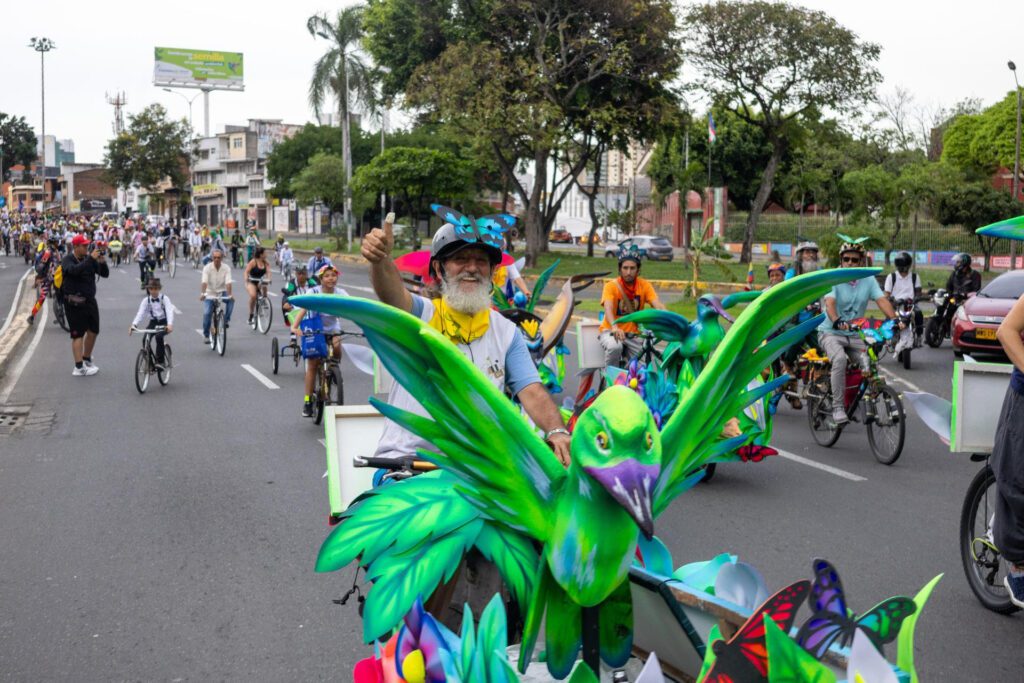
All of the projects created a new sense of possibility in communities facing neglect, trauma, and precarity.
In Harare, Chido worked with over 100 girls to explore the gendered impacts of climate and disaster. “We had girls saying, ‘No one’s ever asked us about this before.’ Now they’re mapping flood risks and influencing policy.”
Yasmina formed intergenerational partnerships throughout her project in the Atlas Mountains, providing space for younger tech-savvy women and more senior protectors of the land to merge expertise and open a shop that sells local produce, both in-store and online. “It has been so meaningful and beautiful working hand in hand as young women from the region with older women with more wisdom… It’s something that we don’t see enough.”
In Bardiya, Nepal, Garima’s sessions on climate literacy didn’t just inform, they ignited. “You could see it — women who’d never spoken at public meetings were now leading them. That’s what knowledge does.”
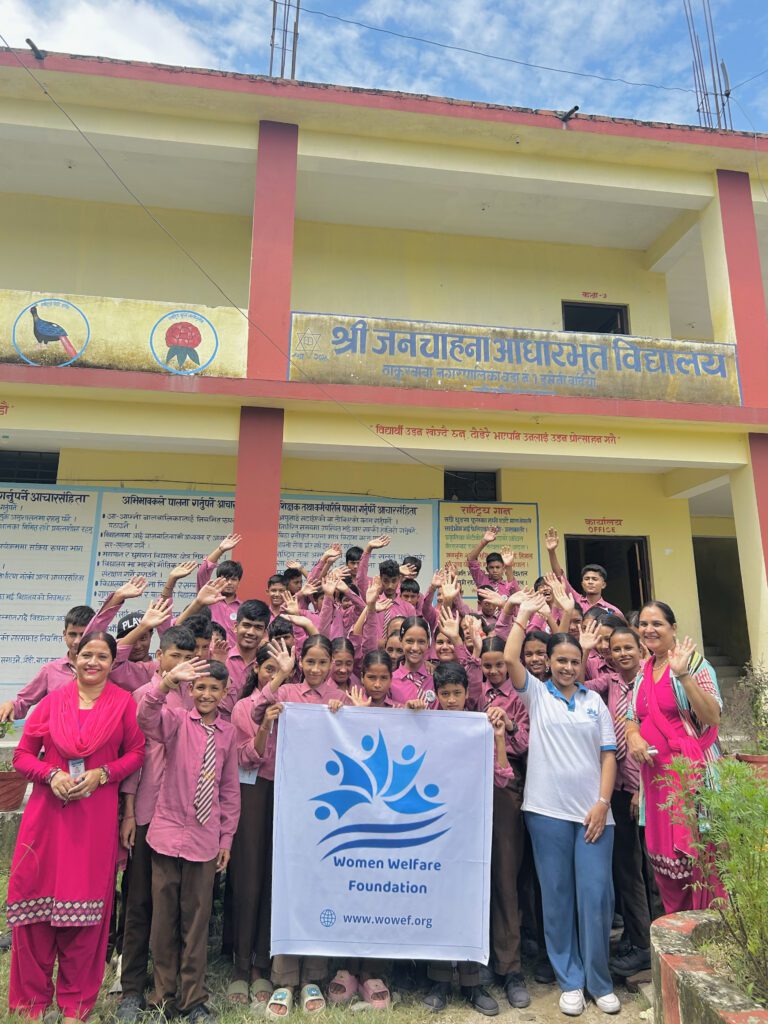
Our collaboration with the Urban Movement Innovation Fund has enabled this work. This partnership doesn’t just redistribute resources, it redistributes power — by funding on the terms of those most affected, not the funder.
Anna said, “We have the shared goal of supporting amazing campaigners with small grants that can be absolutely transformatory.”
The Social Change Nest handles the complexity of international finance, compliance, and due diligence, so funders can focus on values and relationships.
“It gives grantees structure and confidence. The grant becomes a leap of faith that enables amazing realities.”
Together, we’ve built a system where care isn’t an afterthought; it’s the foundation.
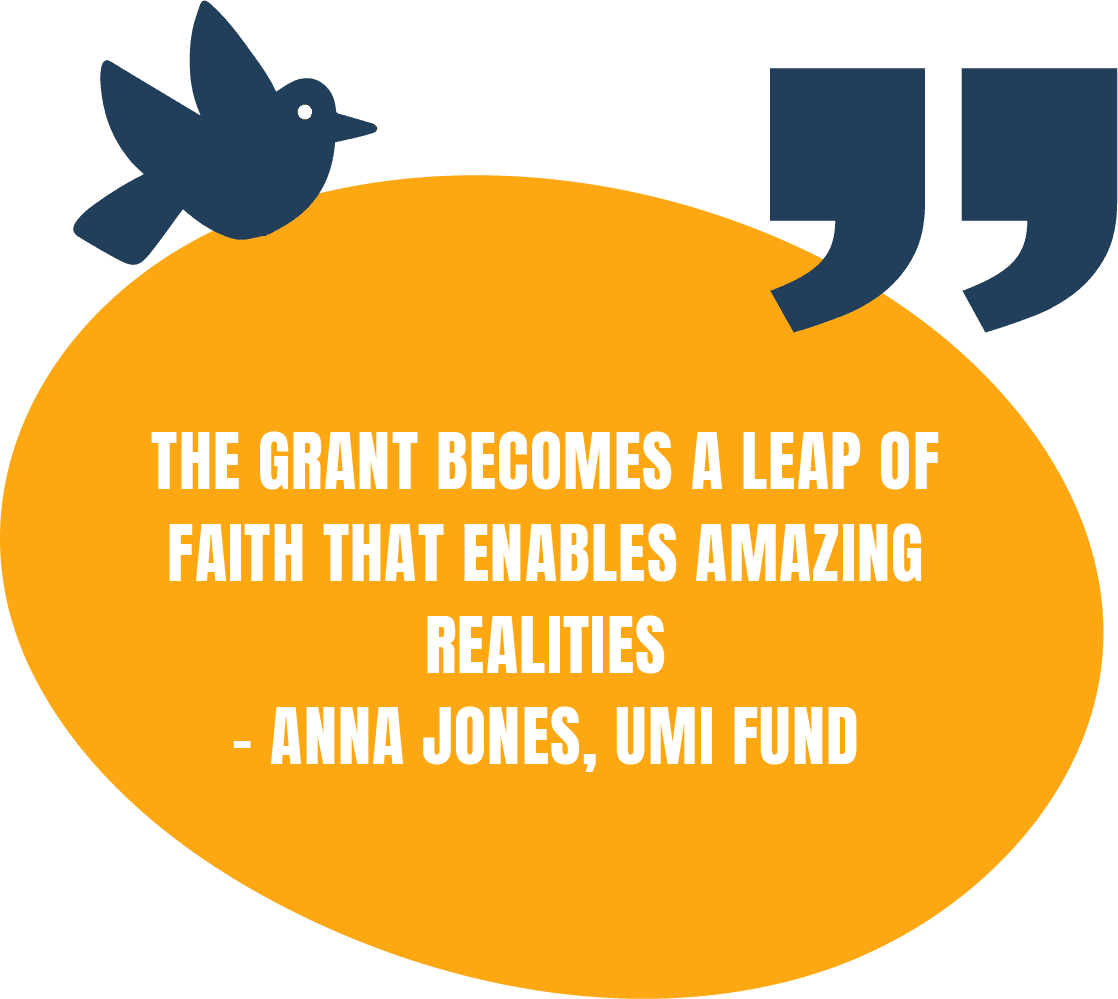
Want help distributing grants?
If you’re a funder and you want to get your money to grassroots organisations, please reach out to Aroa@thesocialchangenest.org or
